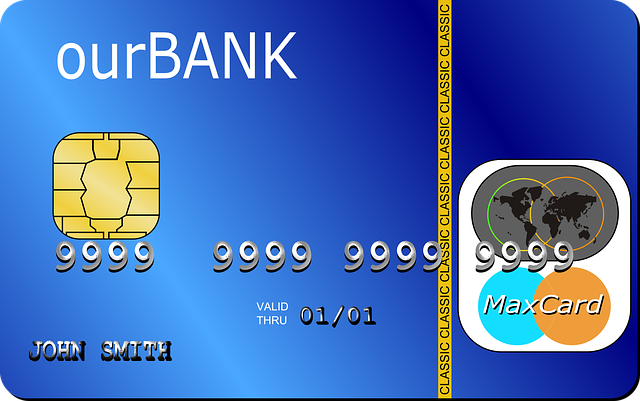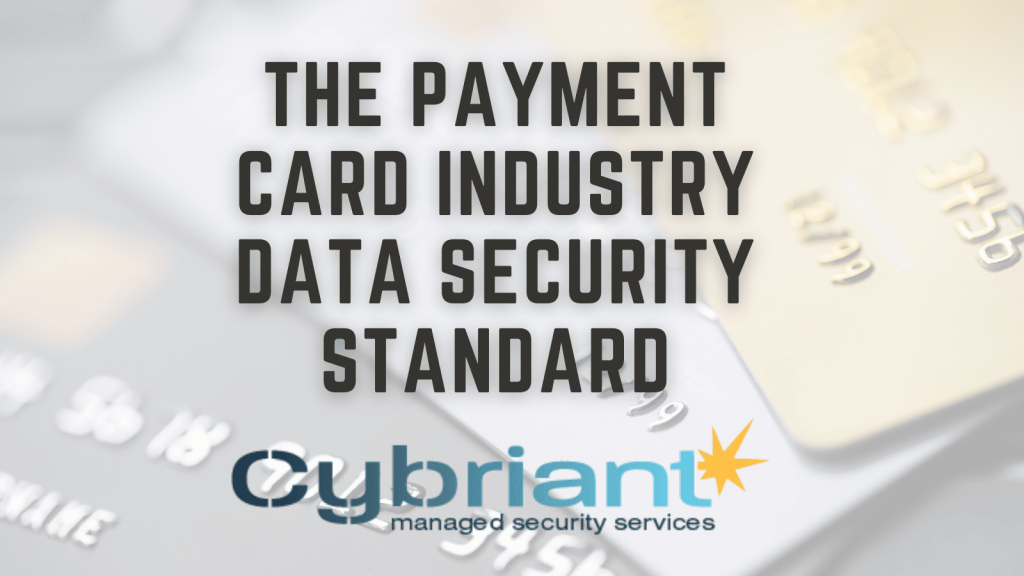As a CIO, you’re likely familiar with the Payment Card Industry Data Security Standard (PCI DSS). But what do you know about it? PCI DSS is a set of requirements designed to protect credit and debit card data. It applies to anyone who processes, stores, or transmits payment card information.
If your company falls into one of these categories, it’s important to understand how PCI DSS can help protect your customers’ cardholder data. In this blog post, we’ll take a closer look at PCI DSS and explain why it’s so important for businesses processing credit and debit cards. We’ll also provide tips on how you can make sure your company is compliant with PCI DSS. Stay safe!
PCI DSS Compliance
The Payment Card Industry Data Security Standard (PCI DSS) is a set of security standards designed to protect organizations that process, store, or transmit credit card information. PCI DSS is managed by the PCI Security Standards Council (PCI SSC), an independent body that was founded in 2006 by major credit card companies (Visa, Mastercard, Discover, American Express, and JCB).
Since its inception, PCI DSS has become one of the most widely-adopted security standards in the world. As of 2018, there are over 3 million organizations in over 150 countries that are compliant with PCI DSS. PCI DSS compliance is required by all organizations that process credit card payments, regardless of size or industry.

The Importance of PCI Compliance
As technology advances, so do the risks associated with it. In today’s digital age, protecting sensitive information has become a top priority for businesses of all sizes. One of the most significant threats to data security is credit and debit card fraud, which can have serious consequences for both individuals and companies. This is where PCI compliance comes into play.
The Payment Card Industry Data Security Standards (PCI DSS) were developed to help protect against the risks associated with cardholder data breaches. PCI compliance is not only essential for secure transactions, but it also helps businesses build trust with their customers and partners, and avoid costly penalties and legal action. Ensuring PCI compliance should be a top priority for any company that handles sensitive information.
Cardholder Data
Cardholder data is any information that can be used to identify a cardholder, including name, address, card number, expiration date, and CVV code. Cardholder data is considered to be the most sensitive information in the credit card processing chain, and as such, must be protected at all times.
Every day, businesses process, store, and transmit credit card information. This puts your business at risk of a data breach.
A data breach can be incredibly costly for a business. Not only does the business have to deal with the financial costs of the breach itself, but they also have to deal with the loss of customer trust and damage to its reputation.
PCI compliance protects your business from data breaches. By following the PCI DSS security standards, you can protect your customers’ cardholder data from being stolen or compromised.
What Card Data is Covered by PCI-DSS?
The Payment Card Industry Data Security Standard (PCI-DSS) is a security standard that was established by the major card brands – Visa, Mastercard, American Express and Discover – to help protect cardholder data. All organizations that store, process or transmit cardholder data must comply with the PCI-DSS in order to protect the privacy and security of customers’ financial information.
The PCI-DSS requires organizations to protect the following types of card data:
- Primary Account Number (PAN): This is the 16-digit credit or debit card number that identifies the issuer and the type of card.
- Cardholder Name: The name associated with the cardholder’s account.
- Expiration Date: This is the date when the card expires and can no longer be used.
- Service Code: The three-digit number that indicates what type of card it is (e.g., debit, credit, etc.).
- Sensitive Authentication Data: This includes any data used in authentication processes, such as the cardholder’s PIN or CVV number.
- Track Data: This includes data stored on the magnetic stripe of cards and is used for processing transactions.
Organizations must ensure that all these different types of card data are securely stored and transmitted in order to protect customer information and comply with the PCI-DSS. To do this, they must use strong encryption and authentication protocols, as well as other security measures to protect cardholder data.
By following the PCI-DSS, organizations can help prevent data breaches and protect the financial information of their customers. This helps build trust with customers and ensures that their sensitive data is kept safe.
PCI Data Security Standard (PCI DSS) Requirements
The PCI Data Security Standard (PCI DSS) requirements are a set of security standards that all businesses must follow to be compliant with the standard.
These requirements are divided into six main categories:
- Build and maintain a secure network
- Protect cardholder data
- Maintain a vulnerability management program
- Implement strong access control measures
- Regularly monitor and test networks
- Maintain an information security policy
These requirements are designed to ensure that businesses have comprehensive security measures in place to protect cardholder data from theft or misuse. They also include extensive guidance on how to implement these measures and provide detailed instructions for assessing compliance with the requirements.
Organizations must implement all 12 requirements to be compliant with PCI DSS. In addition, they must also undergo annual independent assessments by a Qualified Security Assessor (QSA) to validate their compliance.

History of PCI DSS Compliance
The Payment Card Industry Data Security Standard (PCI DSS) was developed in response to the growing threat of data breaches involving credit card information. It is a set of security standards created by the PCI Security Standards Council, an independent organization created by major payment card brands.

PCI DSS was first released in 2004, and since then it has undergone several revisions to keep up with changes in technology, data security threats, and industry best practices. The latest version of PCI DSS (version 3.2) was released in 2016 and includes additional requirements for cloud computing, encryption, and secure software development.
Risk of Non-Compliance with PCI DSS
Organizations that fail to comply with PCI DSS can face significant fines and penalties. Non-compliance carries several risks, including potential customer data breaches, customer dissatisfaction, reputational damage, litigation costs, and loss of external payment processing services.
To avoid these risks, organizations must ensure that they are compliant with the PCI DSS requirements. They should also conduct regular assessments of their systems and processes to identify any potential weaknesses or vulnerabilities that could lead to a data breach.
Mobile PCI Payment Security
Mobile PCI payments offer merchants and customers an easy and convenient way to pay for goods and services. However, it is important for business owners to make sure that these transactions happen securely. By adhering to PCI DSS compliance rules, mobile PCI payment gateways can provide a secure environment for businesses and customers alike, protecting both parties from fraudsters and other potential digital threats.
Business owners can rest assured that their client’s personal information remains safe and secure on the PCI gateway system. From tokenization techniques to complicated encryption algorithms and dynamic data testing, these systems can keep all of your sensitive data safe while providing a convenient payment solution.
Payment Card Industries
Which industries will require payment card compliance?
Payment Card Industries (PCI) compliance is required for any company that processes, stores or transmits credit card data. This includes many different industries, including online retailers, e-commerce websites, hospitality companies, restaurants, and other service providers. All organizations involved in such transactions must comply with the PCI Data Security Standard to ensure customer financial data is securely handled. This includes the use of firewalls, encryption, secure passwords, and other security measures to protect customer data from unauthorized access or misuse. Compliance also involves monitoring for any potential breaches to detect and prevent them. Failure to comply with PCI standards can result in hefty fines and damage to a company’s reputation. Hence, it is important for any company dealing with credit cards to ensure they are PCI-compliant.
PCI Compliance – Credit Card over Phone
For businesses that accept credit card payments over the phone, it is essential to ensure they are in compliance with the Payment Card Industry Data Security Standard (PCI DSS). PCI DSS is a set of security requirements designed to protect cardholder data and prevent fraud. It applies to any business that stores, processes, or transmits payment card data and is required by credit card companies such as MasterCard, Visa, American Express, Discover, and JCB.
To be PCI compliant, businesses must adhere to specific requirements regarding the collection, storage, transmission, and protection of customer information. This includes having a secure payment processing system in place for accepting payments over the phone. All transactions should be encrypted using secure sockets layer (SSL) technology to ensure customer data is kept confidential. Additionally, customer service representatives should be trained to handle credit card numbers securely, and call recordings must be stored in a locked and secured location.
Finally, businesses must go through an annual PCI compliance validation process which includes an assessment of their security controls and protocols. This includes testing systems, processes, and procedures to verify they are in compliance with PCI DSS standards. The goal of this assessment is to ensure a secure environment for the handling of customer sensitive data and reduce the risk of fraud.
By adhering to PCI DSS standards, businesses will be able to accept credit card payments over the phone with confidence and provide their customers with a safe and secure shopping experience. Staying compliant will also save businesses time and money by avoiding costly fines and penalties associated with non-compliance.
Payment Application Data Security Standard (PA-DSS)
Payment application data security standard (PA-DSS), which is a security standard for payment applications. Businesses must also comply with this if they are using third-party payment applications to process credit card payments over the phone. It is important to ensure that all such payment applications have been validated against the PA-DSS and are up to date in order to remain compliant.
PCI Compliance – Emailing Credit Card Info
Businesses that accept credit card payments over email must also ensure they are in compliance with the Payment Card Industry Data Security Standard (PCI DSS). This standard applies to any business that stores, processes, or transmits payment card data. To be PCI compliant, businesses must ensure customer information is kept secure by encrypting emails containing cardholder data such as credit card numbers and expiration dates. Additionally, customer service representatives must be trained to handle this sensitive information properly and delete emails containing customer data after the transaction is complete.
Finally, businesses must go through an annual PCI compliance assessment process to verify their security controls and procedures are in line with the PCI DSS standards. The goal of this assessment is to reduce the risk of fraud by keeping customer data secure. By adhering to these standards, businesses will be able to accept credit card payments via email with confidence and provide their customers with a safe and secure shopping experience.
PCI Compliance – Storing Credit Card Numbers
Businesses that store customer credit card information must also ensure they are in compliance with the Payment Card Industry Data Security Standard (PCI DSS). This includes having secure systems and protocols in place for storing and protecting customer data. For example, businesses must have a system that encrypts customer data such as credit card numbers and expiration dates to safeguard it from unauthorized access. Additionally, customer service representatives should be trained to handle this sensitive data securely and delete records once the transaction is complete.
Finally, businesses must go through an annual PCI compliance assessment process to verify their security controls and procedures are in line with the PCI DSS standards. The goal of this assessment is to reduce the risk of fraud by keeping customer data secure. By adhering to these standards, businesses will be able to store customer credit card information with confidence and provide their customers with a safe and secure shopping experience.
PCI Compliance Transmitting Data
The PCI DSS compliance rule around transmitting data is essential to payment security. It requires that all data transmitted over public networks be adequately protected through the use of protocols like SSL/TLS encryption. The SSL/TLS encryption ensures that sensitive payment data, such as credit card numbers, is transmitted securely, thereby reducing the risk of interception or compromise by hackers.
In addition, the PCI DSS compliance rule mandates that merchants should encrypt all payment data before transmission, regardless of their location. The data’s encryption must happen at the point of capture, whether online, in-person, or over the phone, and throughout the transmission process until it reaches the payment processor.
Moreover, the PCI DSS compliance rule also requires that merchants should regularly test their networks to ensure the efficacy of their security measures. This testing can include penetration testing and vulnerability assessments, which can help identify potential weaknesses in the payment systems and enable merchants to fix them promptly.
Overall, the PCI DSS compliance rule around transmitting data seeks to safeguard payment information from unauthorized access or theft by hackers. It acts as a proactive measure designed to enhance the security and safety of financial transactions.
PCI DSS – Storing Credit Card Information Law
As a recap, PCI DSS is the compliance law around storing and using credit card information. This law requires that merchants who process, store or transmit cardholder data must adopt and adhere to security standards.
The PCI DSS rule prohibits storing sensitive payment information such as credit card numbers via unencrypted methods. All credit card information must be stored in encrypted form and merchants are expected to use robust encryption algorithms such as AES-128 bit or higher. Furthermore, the PCI DSS rule requires merchants to limit access to cardholder data only to authorized personnel who need it for legitimate business purposes.
Merchants are also required by the PCI DSS compliance rule to regularly monitor their networks and systems in order to detect any unauthorized access or suspicious activities. Additionally, they must ensure that their payment systems are regularly assessed for vulnerabilities and patched immediately when needed.
Overall, the PCI DSS compliance rule around storing credit card information seeks to protect consumer data from unauthorized access, theft, or misappropriation by malicious actors. Adhering to this law can help merchants avoid hefty fines and costly litigation for violating cardholder security regulations.
Conclusion
PCI DSS is a critical aspect of credit card data security. All organizations that process credit card payments must comply with the 12 requirements of PCI DSS outlined in the standard. Organizations must also undergo annual independent assessments to validate their compliance.
Failure to comply with PCI DSS can result in heavy fines from the major credit card companies as well as reputational damage. For these reasons, it is crucial for all organizations that accept credit card payments to take PCI DSS compliance seriously.
Cybriant offers managed compliance PCI DSS services that protect sensitive data. Contact us to learn more.



